In a televised address, President Yoon Suk-yeol said he would ask the National Assembly to cooperate in establishing a planning ministry to combat the low birth rate. "We will mobilize all our capabilities to overcome the low birth rate, which can be considered a national emergency," he said.
In his speech, Mr. Yoon admitted that he had failed in his efforts to improve people's lives. He pledged to use the next three years of his term to improve the economy and address the low birth rate.
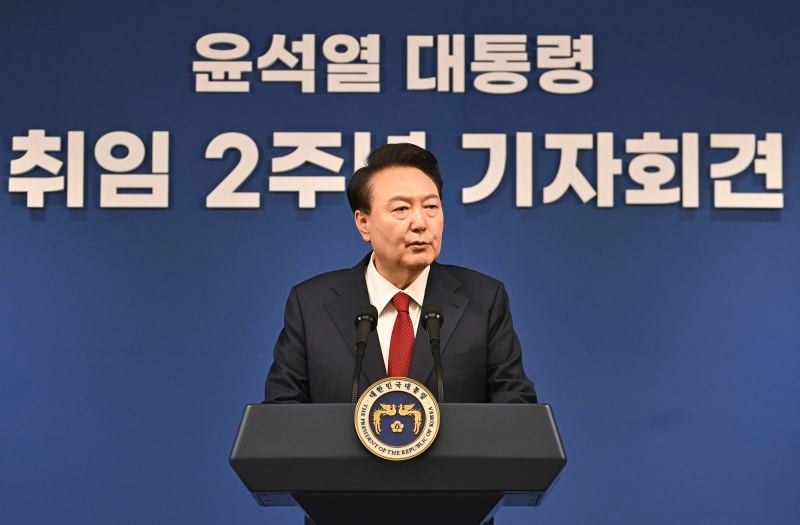
South Korean President Yoon Suk Yeol at a press conference in Seoul on May 9. Photo: AP
South Korea is grappling with a deepening demographic crisis. The country has the world's lowest birth rate - a measure of the average number of children a woman will have in her lifetime.
In 2023, South Korea recorded a fertility rate of just 0.72, down from 0.78 the previous year. Meanwhile, countries need a fertility rate of 2.1 to maintain a stable population without immigration.
Not only South Korea, other East Asian countries are also facing this situation as their societies age rapidly after only a few decades of industrialization.
Many European countries also face an aging population, but the speed and impact of this is mitigated by immigration. Meanwhile, countries such as South Korea, Japan and China remain quite sensitive to immigration.
According to experts, reasons for the demographic changes include work culture, stagnant wages, rising living costs, changing attitudes towards marriage and gender equality, as well as growing "disillusionment" among the younger generation.
In 2022, Mr. Yoon admitted that he had spent more than $200 billion trying to increase the population over the past 16 years. But despite the impact of economic factors, spending money on this issue has proven ineffective.
Initiatives such as extending paid maternity leave, providing cash “birth certificates” to new parents, and social campaigns encouraging men to contribute to childcare and housework have so far failed to reverse the trend of falling birth rates.
Experts and citizens have pointed to some deeper-rooted social problems, such as stigmatization of single parents, discrimination against non-traditional relationships and barriers to same-sex couples.
The Japanese government has tried similar measures to encourage couples to have children, but to no avail, prompting the country's leaders to take urgent action in recent years.
In January 2023, Japanese Prime Minister Fumio Kishida warned that Japan was "on the brink of being unable to maintain social functions" due to the falling birthrate, and announced plans to create a new government agency focused on the issue.
A few months later, the Children and Families Agency was established to address a range of issues, from improving the health and well-being of children to supporting families and parents.
According to the agency's website, the measures are aimed at "overcoming the falling birth rate" and creating a society where people "feel hopeful about getting married, having children and raising them".
Hoai Phuong (according to CNN)
Source: https://www.congluan.vn/tong-thong-han-quoc-noi-ty-le-sinh-giam-la-tinh-trang-khan-cap-quoc-gia-post294945.html



![[Photo] Nearly 3,000 students moved by stories about soldiers](https://vphoto.vietnam.vn/thumb/1200x675/vietnam/resource/IMAGE/2025/5/17/21da57c8241e42438b423eaa37215e0e)











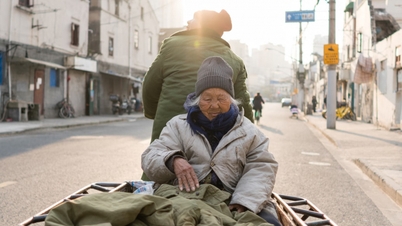



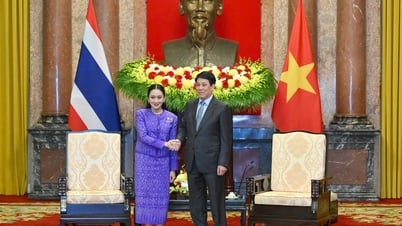




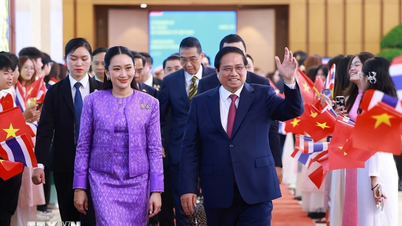

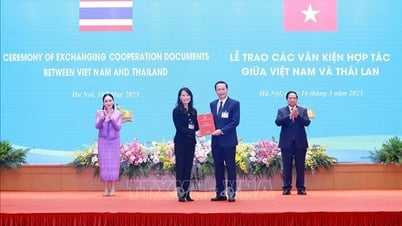













































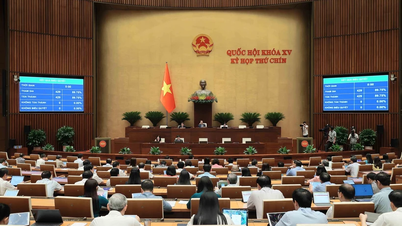












![[Infographic] Numbers about the 2025 High School Graduation Exam in Dong Thap Province](https://vphoto.vietnam.vn/thumb/402x226/vietnam/resource/IMAGE/2025/5/17/c6e481df97c94ff28d740cc2f26ebbdc)





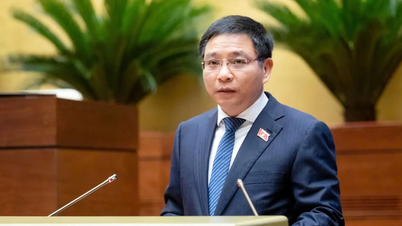













Comment (0)